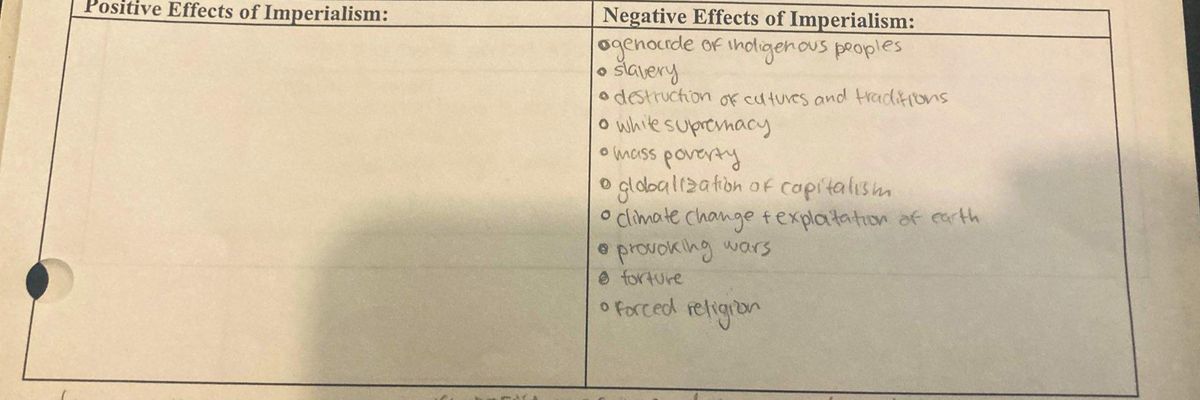A Massachusetts student's response to a homework assignment went viral Tuesday after the high schooler refused to list "positive effects of imperialism" but included a long list of its negative impacts on communities throughout history.
Cece Walsh, a 15-year-old student at Cambridge Rindge and Latin School, a public high school outside Boston, thought of numerous harmful effects of governments which expanding their influence and power by force, including the "genocide of Indigenous peoples," slavery, "destruction of cultures and traditions," "forced religion," and the exploitation of the planet.
The worksheet her older sister posted on Twitter Monday--which has been shared more than 18,000 times on the platform by Wednesday morning--showed her vehement disagreement with being asked to consider imperialism's supposed benefits.
"I think that asking us to identify positives of imperialism, something that killed thousands and contributed to slavery, is extremely undermining and disrespectful to people whose ancestors were murdered because of colonization," wrote Walsh on the bottom of the page.
Walsh reported that her history teacher "agreed" with her statement about the question and explained that "he was teaching the text because it was part of the state's curriculum, but he planned to introduce other texts with different perspectives soon."
Walsh's sister argued on Twitter that the assignment is evidence that Republicans' crusade against discussions of anti-racism in public schools is only an extreme version of "racist, imperialist revisionism" in U.S. schools.
On Wednesday, Cambridge Public Schools released a statement saying Walsh was completing an assignment "designed to spark a conversation and to teach students how to critically think about how imperialism is written about."
Walsh told the Boston Globe that she felt the assignment "appeared to downplay the killing of Africans and the pillaging of their lands and resources by using phrases about how the Europeans 'obtained land' or merely 'took control' of colonies."
"The positive effects are often only positive for the oppressors," Walsh added.
Educator Collin Radix-Carter argued that Walsh showed she was "thinking critically" about imperialism, as the school district said it wanted students to.
Walsh "obviously didn't think there is a positive to imperialism, probably after thinking and reading through the material," Radix-Carter said. "Thinking critically is not regurgitating what you read or hear."
Marisa Natale, another educator, wrote that "you can teach critical thinking without opening doors for students to 'both-sides' things like slavery and imperialism."
"That is the opposite of critical thinking," she added.

